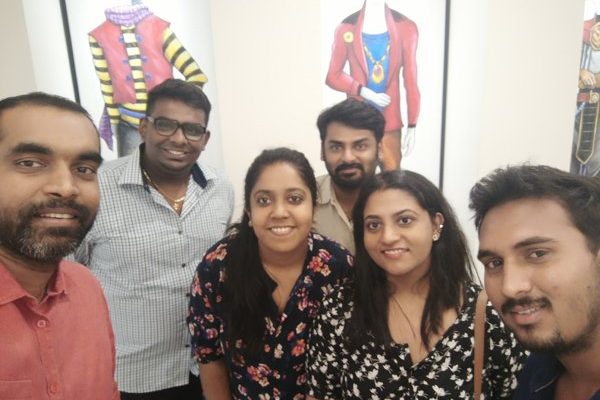Sandeep Dev, Co-Founder of 17dnorth is an ardent follower of No Sir No Madam ideology. 17dnorth helps their clients in defining new points, enable exciting ideas, and design original experiences.
He has completed his graduation in Architecture. Moreover, Sandeep has received his master’s in industrial and product designing from the prestigious National Institute of Design (NID), Ahemdabad.
Being a follower of first-name custom, he has inculcated the same in his company. His employees do not have to follow any salutation mandate while addressing him. Thus, Sandeep always briefs his new employees to practice No Sir No Madam culture only.
Sandeep believes, the moment someone refers an individual as ‘Sir/Madam’, hierarchy comes into existence. It creates a status quo where one person definitely feels inferior to other. Therefore, he ensures that his employees follow first-name addressal. For his work, he needs to interact with high-profile clients too.
Sandeep states — It is easier to get information regarding the service they need when you address them by their first-name. Moreover, they feel comfortable and communicate without any apprehension.
He opines that No Sir No Madam is vital for any organization to operate successfully. It helps in breaking down barriers and enables everyone to voice their opinion. He adds, “If I throw an idea at my employees, they should be able to counter it logically without any hesitation. They can give to criticize my ideas only when they feel at par with me.
In India, ‘Sir/Madam’ Culture is frantically followed by people working in the public sector. Officials impose this salutation edict onto their subordinates and the citizens. Sandeep mentions — In India, while dealing with any bureaucrat, you have to cling to address them by their first-name. Otherwise, they get offended and might even reject your work.
Even in police stations, a person has to refer to the lowest officer with a salutation. It is really upsetting that a person has to oblige to such customs to get their work completed. Sandeep emphasises for a change in the government sector that will be pivotal to abolish such dictatorial rules.
He surmises that influential ministers and officials can help in achieving this goal by embracing the first-name doctrine. Sandeep even recommends Mr. Narendra Modi ji, to preach about first-name custom.
Indians also tend to discriminate blue-collar job workers. It is often noticed Indians considering them as inferior and being demeaning to them. However, in Sandeep’s office, even the office boy who does petty jobs can refer others by their first-name.
He also illustrates the experience of a person who visits the United States. He indicates — People respect each other irrespective of someone’s job. You could walk into any restaurant and converse with the waiter and end up becoming friends. However, this would never happen in India. People treat waiters and others as lower-ranked to themselves.
Moreover, he enunciates, “if you give workers the option to address you by your first-name, they would be hesitant. This is because they have been instructed to follow ‘Sir/Madam’ law all their lives.” Hence, he proposes to eradicate such disparity from society.
Sandeep indicates that this equality can be achieved, if children from their early schooling days are taught about first-name ethics. He quotes one of his experiences when he was at NID.
“Teachers would brief us to address them by their first-name on the very first day itself. This is where I learnt the importance of No Sir No Madam. This enabled us to form a friendly relation with teachers which benefited us in the long run.” He also mentions some schools in Hyderabad where students can refer to their teachers by their first-name.
He concludes — Change will occur slowly. However, everyone needs to preach about No Sir No Madam thesis. Thus, he urges everyone to start inculcating this change from their home itself. As Smriti Irani said, “Just like charity begins at home, we have to start making change from our home and society.”







Add comment